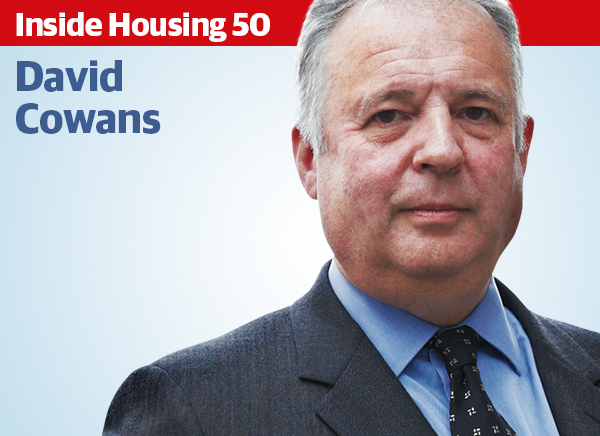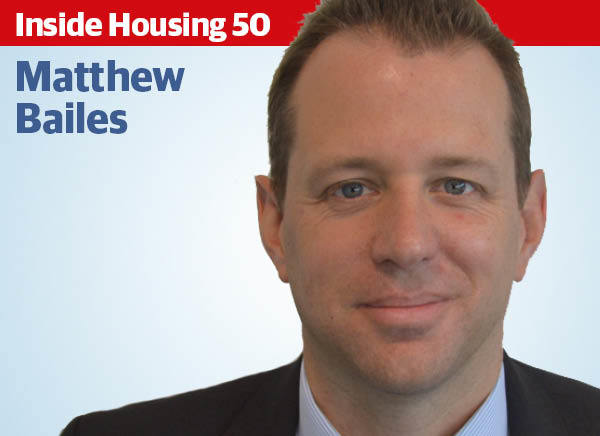
Steve Douglas is chief executive of St Mungo’s
Criticism of White Paper misses the point
The sector should acknowledge the difference in tone in the White Paper compared with that of the previous government, says Steve Douglas

Steve Douglas is chief executive of St Mungo’s
The excitement around the Housing White paper has quickly turned into a feeling of expectations failed and claims of missed opportunities.
I think this is harsh and as a key milestone in what I have described as the journey to rehabilitate the reputation of housing associations, which I call ‘project 2020’, I have a worry that the reaction is in danger of missing the bigger picture.
A little over a year ago, we were struggling to get a seat at the housing policy table; could not talk about social housing rent; and were being lambasted in arguably the biggest housing fake news story of the past few years: that housing associations did not do anything to build homes or to help address the housing crisis.
“You have to be careful which fights you pick.”
A new administration, and a summer process of extensive consultation, suggested that there might be lots of encouragement for new building, some carrots, some sticks, and some radical ideas to speed up supply.
However reality bites.
Getting a more liberal policy through a government that is still in essence conservative, with many internal battles still close to the surface, means that you have to be careful which fights you pick and which buttons you are prepared to push.
The future of the green belt, in the run-up to the White Paper’s publication, saw Conservative MPs Gavin Barwell and Andrew Mitchell publicly disagree on what should be the government’s line on building on land that is green only on a plan.
And seeing Alex Morton publicly state that the new housing strategy, with the reinstatement of the term social rent, is heading in the wrong direction should remind us all of the previous housing policy that sought to demonise the role of housing associations and to stigmatise those in housing need.
Mr Morton might well feel aggrieved at just how different the new policy direction is.
There is a dismantling of almost the entirety of his policy agenda.
There was no mention of the sale of local authority housing assets to fund the voluntary Right to Buy; the implementation of the Right to Buy policy has been long-grassed; compulsory Pay to Stay has gone; and there has been a fundamental revision of Starter Homes.
The big pluses that I see in the White Paper and recent announcements are a return to a strategy that talks about homes for rent and for sale; that speaks of housing associations as key players, as well as local authorities and small to medium-size enterprises; and seeks to call to account those who fail to support development.
Yes, it is short on sanctions and lacking in real levers, but its tone is so strikingly different from what we have had in the recent past that the sector should acknowledge this. Not least because there is still work to be done on ‘project 2020’.
First, to deliver on our numbers.
Our trajectory is that associations could well be nudging delivery of between 40-50% of all new build completions across the country by 2020. This could include some of the largest associations being within the top 10 volume house builders in England. We may have already hit that tipping point in London.
“The debate on flexibility of rents risks becoming seen as a provider interest debate.”
Second, to be recognised as one of central, regional and local government’s key delivery partners, working effectively with other agencies, including the soon to be repurposed Homes England, to deliver successful places and to support communities.
And third to deliver a range of homes including those that are genuinely affordable for the poorest in our society.
I have a worry that some false steps now could undermine the progress that has been so hard won recently.
The debate on flexibility on rents, unless framed within a very clear focus on affordability, risks becoming seen as a provider interest debate, not one about tenants and customers.
It is a warning that the leader of the opposition, Jeremy Corbyn MP, thinks of genuinely affordable rented homes as those being provided by local authorities. There is a task here to make sure the reality is understood.
There should be common cause with local government, whose challenges are broadly the same.
In the next few years, there is an opportunity for a new and constructive dialogue with government, including on housing and social care. That is the biggest plus of the White Paper. The housing sector should not miss the opportunity.
We must take the long view and build a lasting consensus. So do not throw brickbats. Good partners provide advice, constructive criticism and most importantly solutions.
Let us do our utmost to deliver and build our sector reputation in the process.
Steve Douglas, partner, Altair








